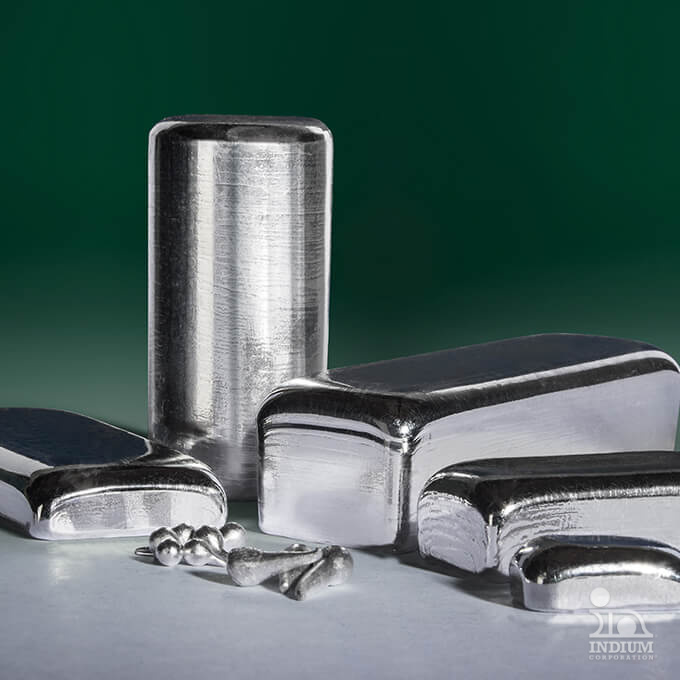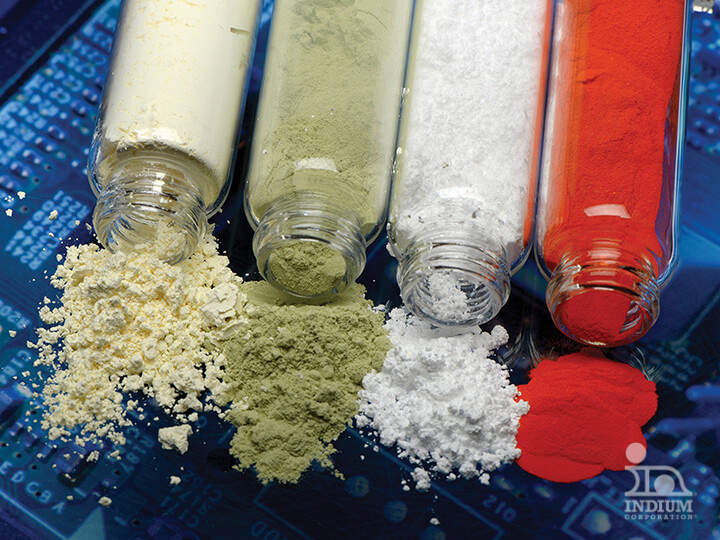Quantum Dots Manufacturing
Quantum dots (QDs) are semiconductor nanocrystals that exhibit unique optical and electronic properties due to their nanoscale size. Today they are typically composed of materials like indium phosphate and gallium phosphate, which have displaced the earlier uses of metals like cadmium and zinc. Manufacturing quantum dots involves processes like colloidal synthesis, where these materials are chemically synthesized to form nanocrystals. This process requires precise control to ensure their desired properties.


Overview
Improve the Efficiency and Yield in Your Quantum Dot Manufacturing with Indium Corporation’s Expertise and High-Purity Materials
The purity and quality of the materials used in manufacturing quantum dots are crucial. High-purity materials lead to better control over the size distribution and surface properties of the quantum dots, which directly impacts their performance in applications like displays, solar cells, and biological imaging. That is why, working with Indium Corporation, which has over 90 years of experience in manufacturing and supplying high-purity materials including indium metal and compounds, is crucial for efficiency and high yield.
Quick Facts
Our 90+ years of expertise in manufacturing and applications of indium and other metals and compounds set up apart from the competition.

Why Indium Corporation
Maximize Your Yield and Potential—Partner With Us Today
As a global leader known for our technical expertise and innovative solutions, we ensure that your products exceed industry standards, offering unmatched performance and reliability. Partner with us to experience cutting-edge technology and exceptional service—the Indium Corporation difference.
Your Success
is Our Goal
Optimize your processes with the latest materials, technology, and expert application support. It all starts by connecting with our team.




